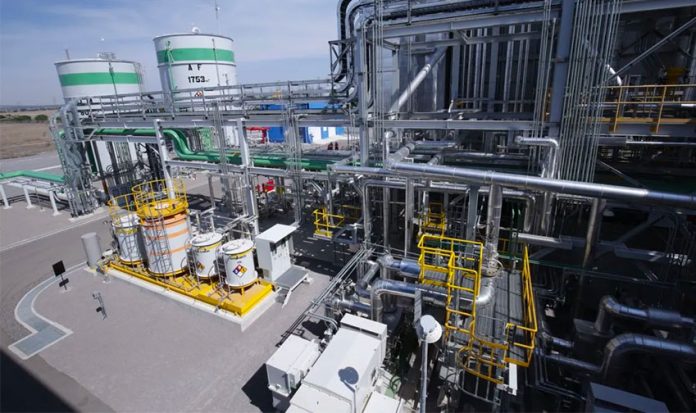Mexico needs to be a “serious and reliable” trade partner in order to take advantage of the new North American trade agreement and attract new investment, according to the Canadian Chamber of Commerce in Mexico (CanCham).
The business group said in a statement that Mexico has the opportunity to attract companies that supply the North American market but which are currently based in Asia.
But Mexico “can only aspire to do so if it behaves as a serious and reliable partner with a modern and long-term vision,” CanCham said.
The business chamber said the Mexican government especially needs to act responsibly in the energy sector, an area in which President López Obrador has shown strong nationalistic tendencies.
CanCham noted that the United States-Mexico-Canada agreement (USMCA), the new trade pact that took effect July 1, “recognizes the obvious” – that the three countries have sovereignty over their own natural resources.
However, it added that Mexico has nevertheless made “important commitments” under the terms of the USMCA and other trade agreements including the Trans-Pacific Partnership, or TPP11
Mexico “cannot change its laws in a way that is contrary to what was previously agreed in other agreements,” CanCham said.
It also said that Mexico cannot discriminate against foreign investors over domestic ones, take steps that result in a “disguised expropriation” of investors’ assets, discriminatorily favor state owned companies such as Pemex or the Federal Electricity Commission (CFE) over its private sector competitors, issue “capricious” government resolutions or allow its autonomous bodies to be negligent by not issuing new energy sector permits.
CanCham said the previous government’s 2014 energy reform, which opened up the sector to foreign and private companies after an almost 80-year state monopoly, is “consolidated” in the USMCA and other trade agreements to which Mexico is party.
Therefore, Mexico is obliged to treat Canadian and United States energy companies in the same way it treats state-owned companies, the business chamber said.
The federal government under López Obrador’s leadership has been criticized for changing the rules of the game in the energy sector. It has made attempts to shut new renewable energy projects out of the Mexican market, put an end to new joint ventures known as farm-outs in the oil sector and suspended oil-block auctions among other moves against private and foreign firms.
López Obrador, a fierce critic of the energy reform, has pledged to “rescue” Pemex and the CFE from what he describes as years of neglect by past governments. He has also vowed to make Mexico self-sufficient in gasoline by 2023.
In its National Development Plan, the government committed to establishing a sovereign, sustainable, efficient, low-emissions energy policy that guarantees energy security and accessibility.
CanCham countered that achieving that goal will only be possible if Mexico welcomes the participation of private investors, “in particular renewable energy ones,” and respects its commitments under the USMCA, TPP11, its free trade agreement with the European Union and the Paris climate agreement.
Canada has significant business interests to protect in Mexico. Canadian companies invested some US $3.4 billion here in the first half of the year, a figure that accounts for 19.1% of total foreign direct investment in Mexico.
Former ambassadors to Mexico Pierre Alarie of Canada and Roberta Jacobson of the United States said in July that Mexico needs to do more to create a welcoming environment for foreign investors, while Canadian energy investors wrote to their government the same month to warn that Mexico could already be violating the USMCA by failing to respect existing contracts.
Current U.S. officials have also taken issue with changes to Mexico’s energy sector policies.
Source: El Economista (sp), EFE (sp)
